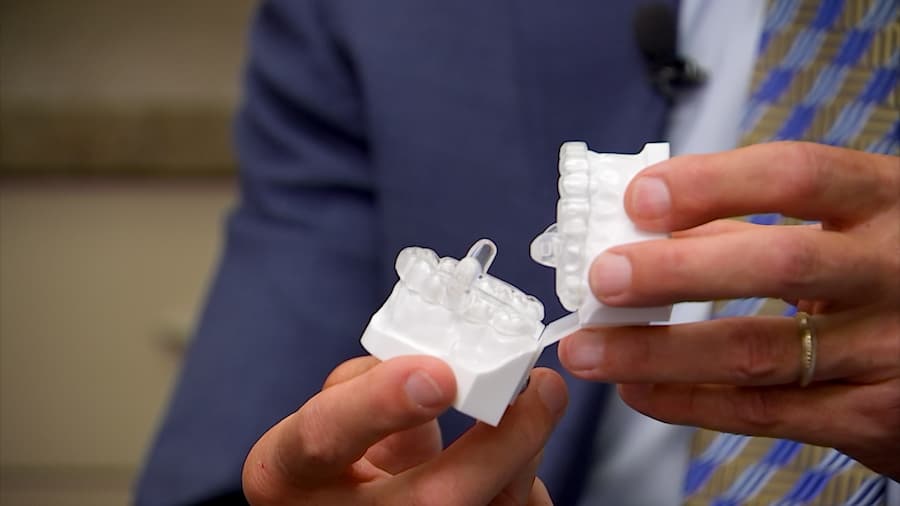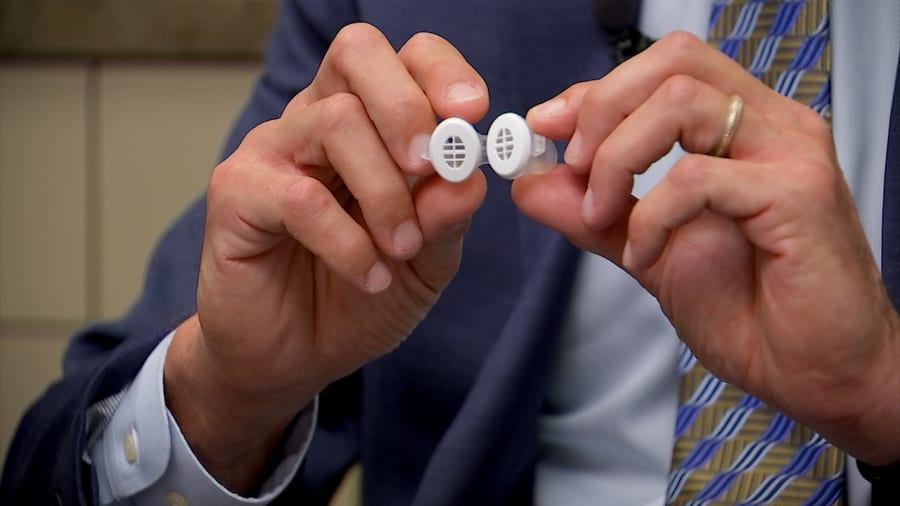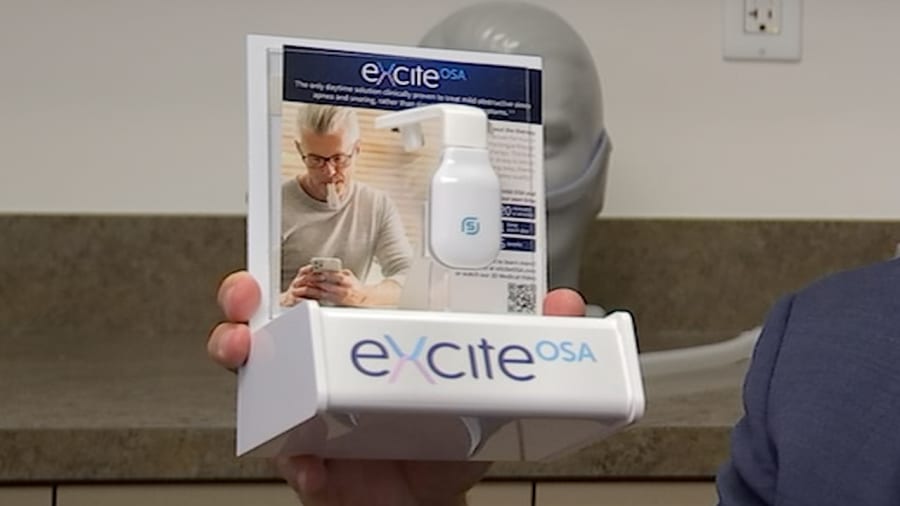JACKSONVILLE, Fl – Several of you tell us you have to sleep in another room because your partner snores so loudly it keeps you awake at night. You are not alone!
More than 72 million men, 52 million women and 19 million children snore in the United States.
The sound comes from your soft palate, the area at the back of your mouth toward the top of your throat. Dr. Peter Nassar, medical director of the Jacksonville Sleep Center, said the snoring sound comes from, ”the airflow across the soft palate, causing reverberation or frequent vibrating.” Any narrowing of that area impacts the velocity of the airflow creating noise.
Some of our viewers said they snore so loudly it wakes them up at night, while others said they can hear their relative snoring in another room through the door. How can you make it stop?
RELATED: Do you have sleep apnea?
Nassar said there are four triggers that cause snoring or make it louder:
Sleeping on your back
“What we’ll find is that people usually on their back, gravity takes over, the soft palate falls back and it vibrates more,” explained Nassar. You can correct that by sleeping on your side or on your stomach.
One of our viewers said she can’t sleep on her back due to previous surgeries. Nassar suggested elevating your head with pillows or by elevating the head of your mattress.
Smoking
“Tobacco smoke causes inflammation in the airway,” explained Nassar. Inflammation increases the velocity of the air and the loudness of the snoring.
Alcohol
This is another trigger. “We think that alcohol causes increased relaxation of the muscles that hold the airway open and you have more collapse and again, more snoring,” explained Nassar.
He said you should avoid drinking before bedtime, to decrease your risk of snoring while you sleep.
Body Weight
Weight is a big snoring factor. So much so, Nassar said about 45% of men and 25% of women snore because they are overweight.
“More men than women snore,” he said since men tend to carry their weight in their neck, which impacts the velocity of airflow in the soft palate since large neck size can narrow the area where air passes.
Other factors causing snoring
Age does not help. As people get older, the muscle tone in their neck and tongue is not as strong, which can lead to snoring later in life.
More people tend to gain weight as they age, as well, which can cause them to develop a habit of snoring. For this reason, Nassar said more people 50 and older tend to snore.
If nothing else seems to work to stop snoring, Nassar said there are devices that can be used to help.
Snoring Treatments
Oral Appliances
Nassar showed us how an oral appliance that fits across your lower and upper teeth, like a mouthpiece, can adjust your jaw as you sleep pulling your tongue forward to stop you from snoring. It’s worn while you sleep.
Some are sold over-the-counter or a mold can be created by your dentist.
Some are covered by health insurance.

EPAP
Another appliance to help stop snoring fits into each nostril while you sleep. It’s called expiratory positive airway pressure.
Nassar showed us two small tubes that can be inserted at bedtime. “These tubes really hold your nose a little bit further open so you can get great airflow in when you breathe out,” he explained.
He said the appliance, Bongo, is a one-time purchase and is not typically covered by health insurance.

Excite
If you don’t want to wear anything while you sleep to stop snoring, there is a newer device called, Excite, which increases the tone in the tongue so there is more space near the soft palate to allow more airflow.
“You put this in your mouth for the first, I think, 10 days for 20 minutes,” explained Nassar. “There are simulator probes that deliver a mild electrical shock to the tongue.
“I’ve tried this,” he said. “It’s gentle.” After the first couple of weeks, you only have to use the device twice a week for a few minutes and it can be worn during the day, said Nassar.
You should know, snoring could be a signal of a more serious health condition called sleep apnea.
The Jacksonville Sleep Center, offered through Baptist Health, can conduct a sleep study either at its office or at your home to determine if you have sleep apnea. To learn more click here.

Tackling insomnia
Dr. Peter Nassar, Medical Director of the Jacksonville Sleep Center at Baptist Health, joined us Wednesday morning to tackle the topic of insomnia in our “Sleeping Soundly” series.
Press play below to watch his interview:


